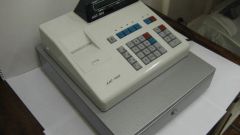Instruction
1
Yip, that are on the imputed income, is not required to maintain accounting records. The Tax code provides for the accounting of IP, but in what form is not specified. In particular, the special Ledger of income and expenses for payers ENVD are not provided. For tax authorities it is also of particular interest, because neither the income nor the expenditure in the amount of tax payable is not affected. Despite the fact that FE is not required to maintain records that they can do it for your own purposes to track the dynamics of revenues.
2
SP NP UTII obliged to keep records of physical indicators, which are used in calculation of the tax base. They vary depending on the activity. For example, for personal services as a physical indicator is the number of employees. So entrepreneurs need to keep track of the number of employees and the time sheet. For retail, the tax base depends on sales area. Therefore, FE must have a rental agreement, which contains information about the area of the premises or documents confirming the right of ownership to it.
3
According to the innovation 2012, SP are required to comply with cash discipline. This means that they must issue credit and debit orders for all cash transactions and maintain records of invoices. But since all proceeds of IP relates to his personal funds entrepreneurs provided some relief compared to OOO. So, they can set a zero limit for cash balance and did not surrender in excess of its receipt in cash, IE may not keep all the cash in the register and debit incoming money. In the presence of a cash register PI must keep a book of the cashier-teller.
4
IP on the imputed income can reduce the amount of imputed taxes on insurance premiums paid for yourself or for employees. Therefore, it is necessary to keep the receipt of payment of such payroll taxes or have the opportunity to provide a statement of your Bank account.
5
If IE is the employer, it should have a full range of documentation related to the involvement of employees. The list of personnel documentation includes rules labor regulations; job descriptions; staffing; orders; registration of work records; provisions for payment and personal data; schedule vacations, etc.
Note
If the company combines the imputed income and other tax regime (OSNO or the simplified tax system), it should maintain a separate accounting of revenue received. In addition, for those who combines PT and GTS or STS income minus expenses necessary to conduct another and separate accounting of income.
Useful advice
In the absence of documents that confirm the accuracy of the account of physical indicators, could face a fine from the tax authorities. But fine IP on the imputed income, which does not Kadir tax can not, for it cannot be liable.










